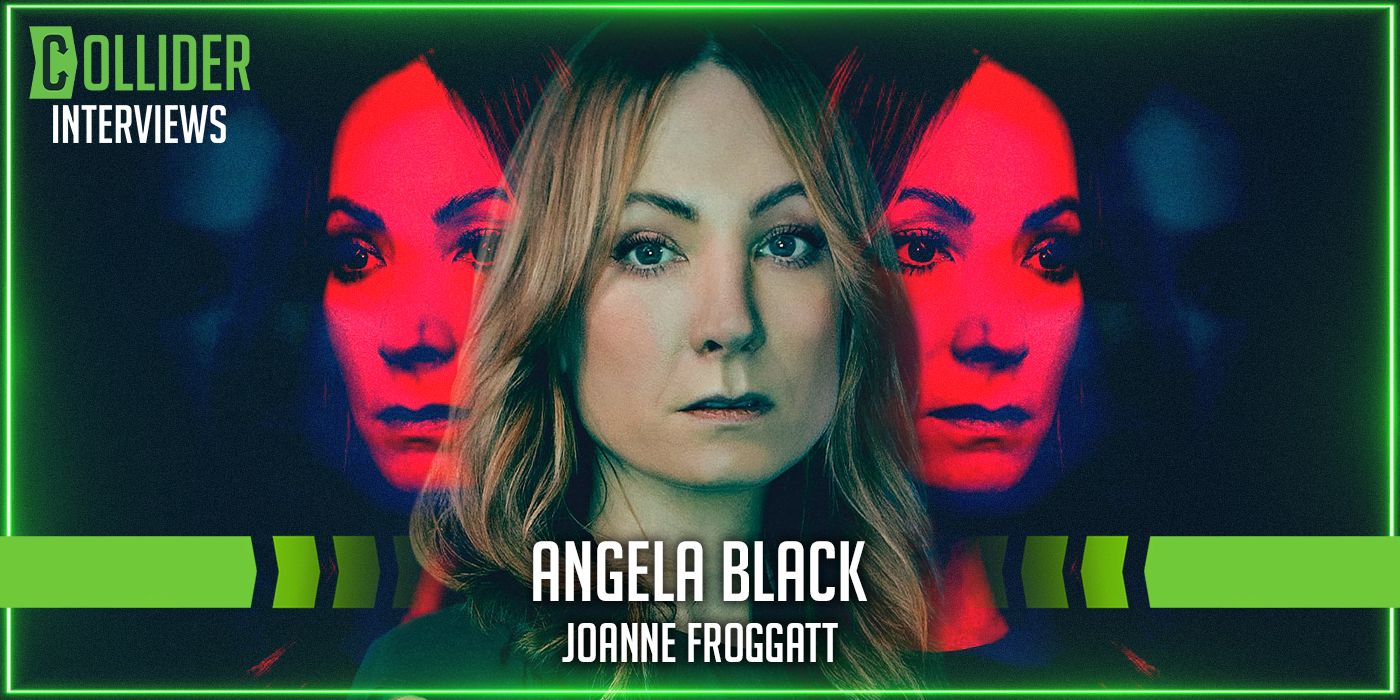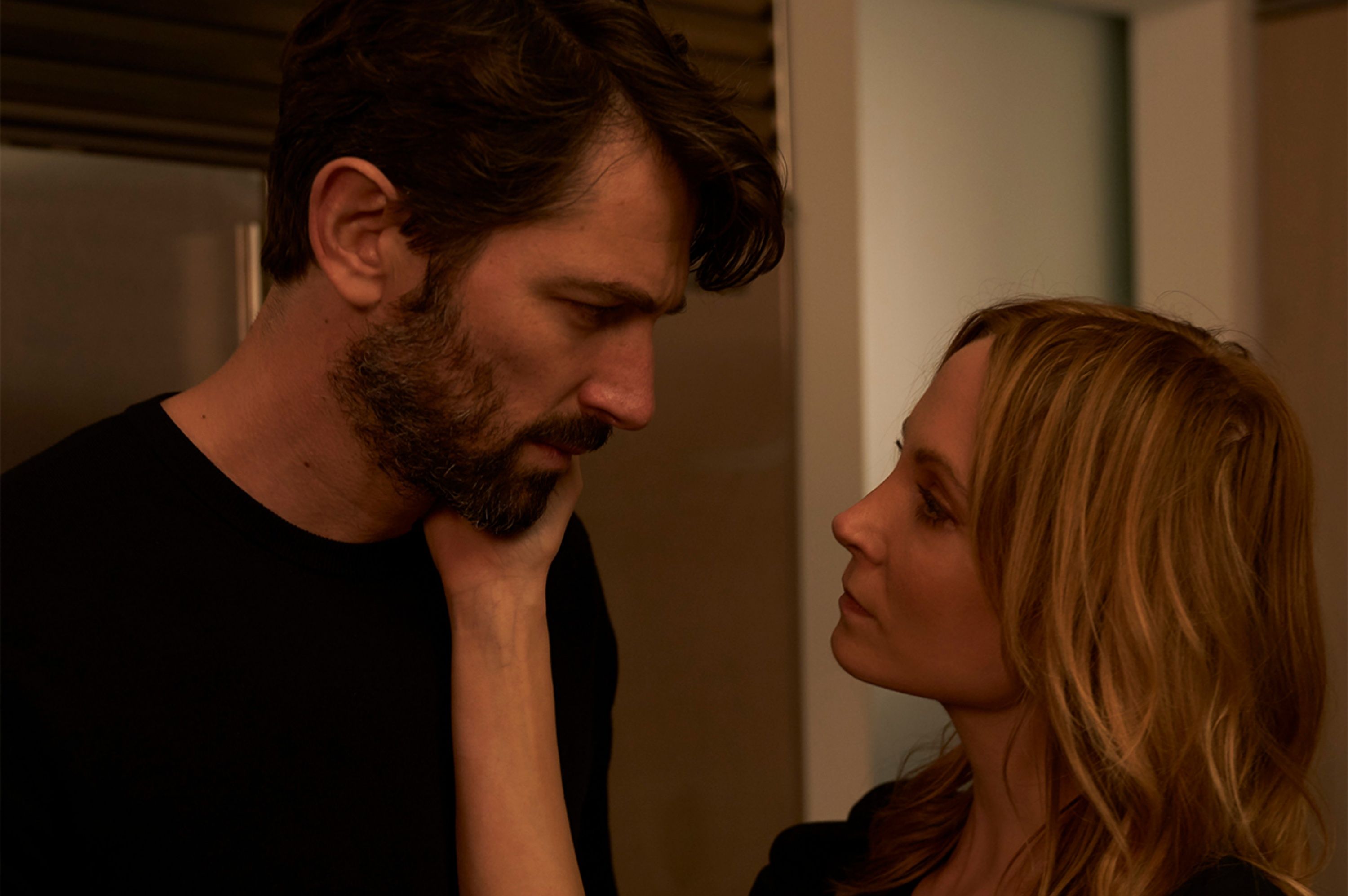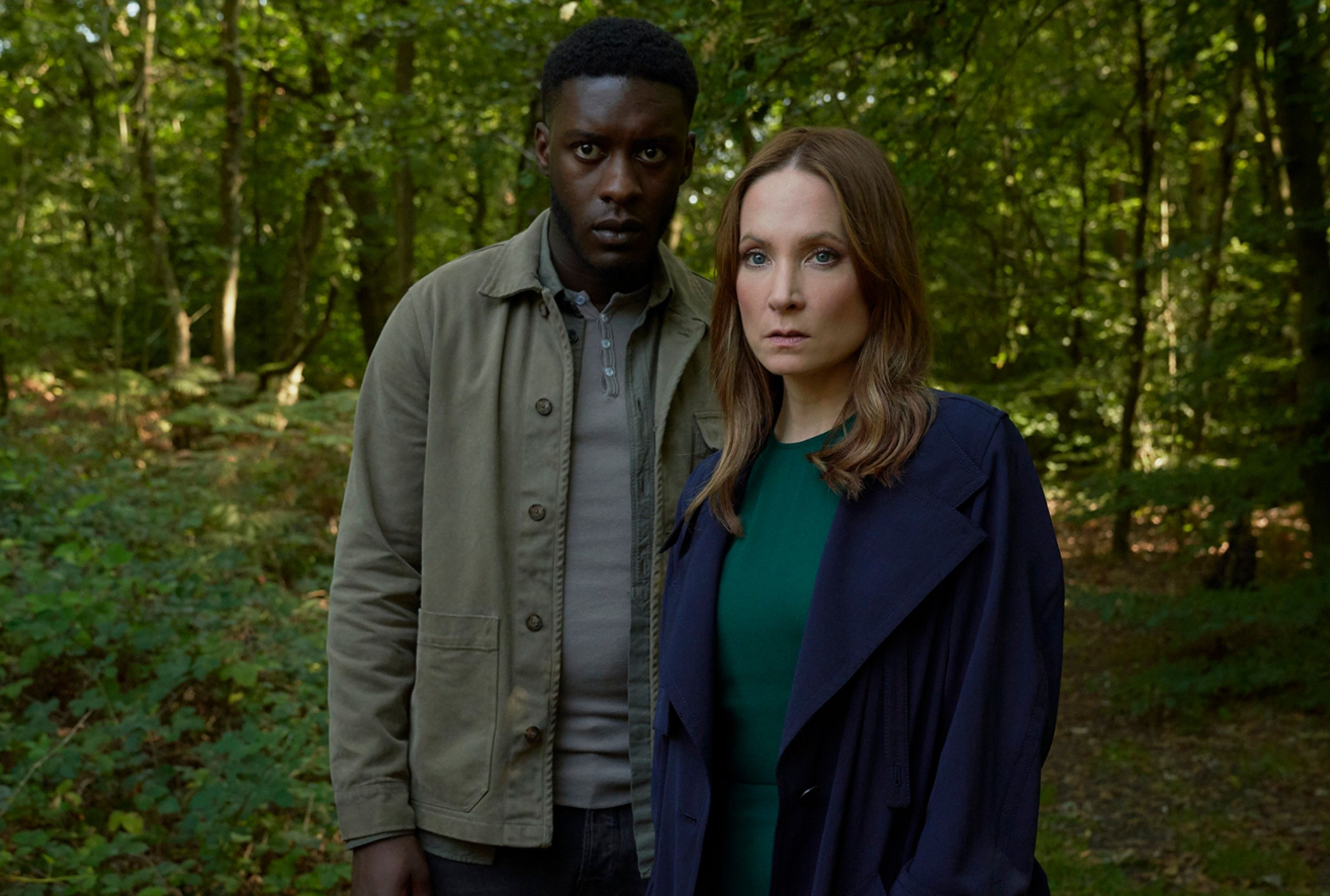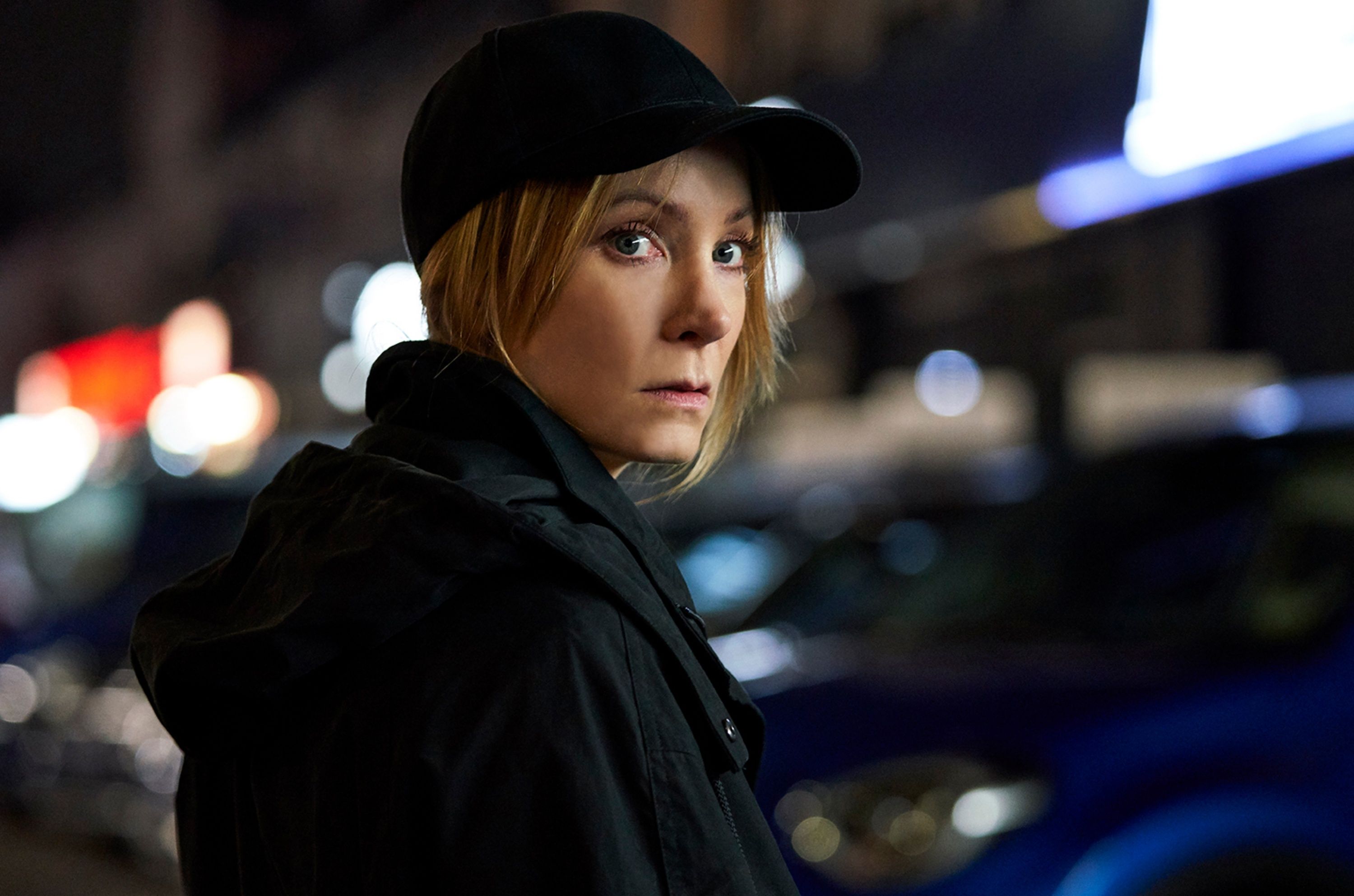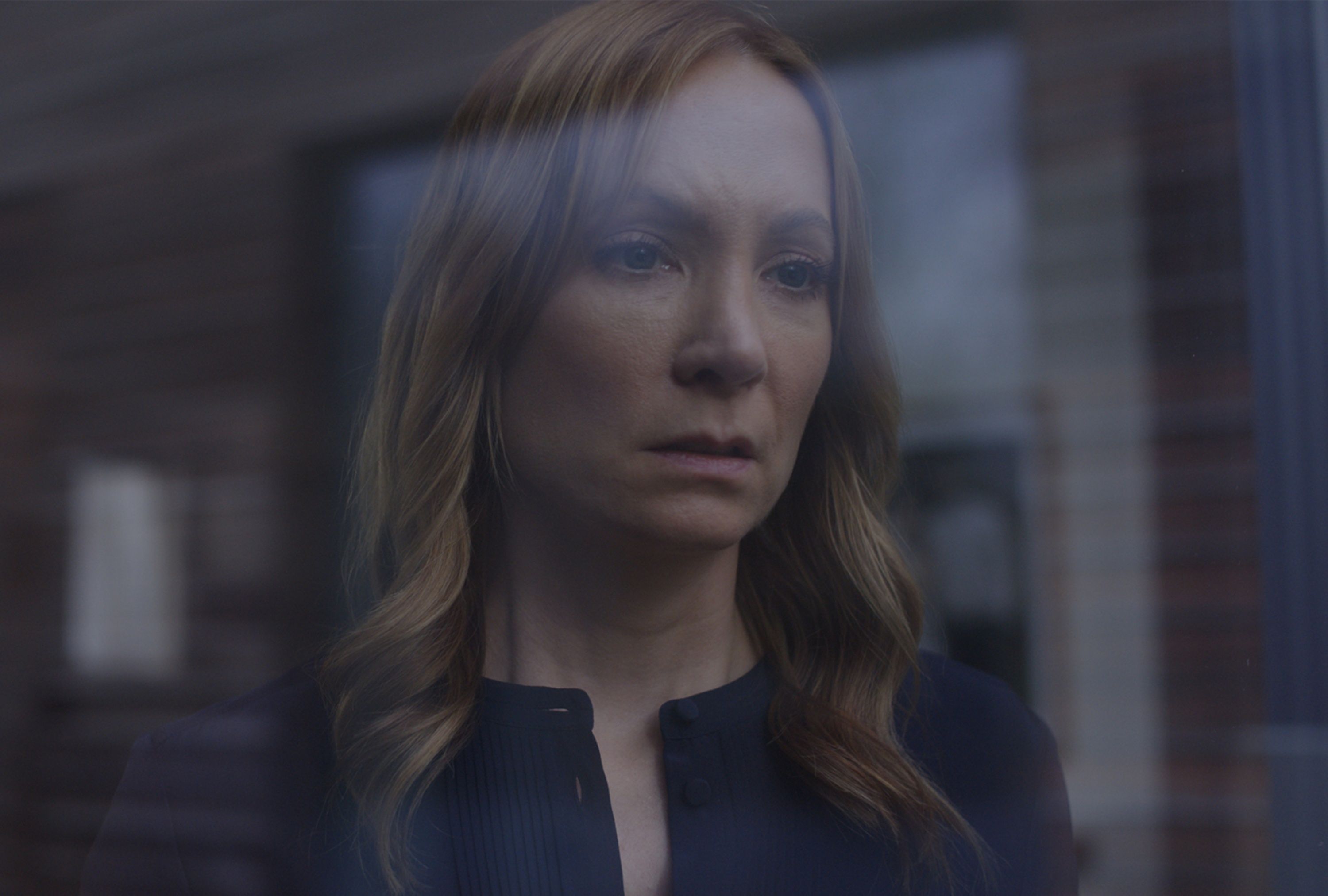[Editor’s note: The following contains spoilers for Angela Black.]
From creators, Jack and Harry Williams (Liar), the six-episode psychological thriller Angela Black, which is available through Spectrum, follows a wife and mother of two young sons who appears to have an idyllic life and a perfect family, but for Angela (Joanne Froggatt), the reality is much darker. A victim of domestic violence at the hands of her controlling husband Olivier (Michiel Huisman), who has covered her bruises with makeup and excuses, is suddenly faced with shocking truths that force her to take drastic action in order to survive.
During this 1-on-1 interview with Collider, which you can both watch and read, Froggatt talked about the roller coaster ride of the story, why they approached portraying domestic abuse in the way that they did, how her Angela Black character compares to her character in Liar (from the same creators/writers), the experience of working with co-stars Huisman and Samuel Adewunmi, and her reaction to learning about the story’s conclusion. She also talked about the incredible journey of success for Downton Abbey and what fans can look forward to with her character in the sequel.
Collider: This was quite the roller coaster of a journey that I went on, watching this show. I love a good psychological thriller, even more so when you throw in a mystery and some twists and turns in it. That being said, there’s nothing I hate more than an abusive husband who lies and manipulates to set up his own wife. That’s the literal worst. When you first read the script for this, what was your reaction to him and to the relationship between your characters? What was it like to see it on paper, and then figure out how to translate that?
JOANNE FROGGATT: I was sent the first three episodes from Jack and Harry [Williams], our writers, who I’d worked with before, so I was really excited to receive the scripts from them, and I just couldn’t put it down. I read all three scripts in one sitting, which is a great sign. It’s such a twisty, turny psychological thriller. It’s very Hitchcockian in its style. It starts off quite subtly and then the story really, really ramps up, as we get to halfway through the series. I think all the elements are just so interesting. Something that seems incredibly insignificant in the first episode, once you’ve watched all six, if you look back, then you know that it was absolutely very significant. So, I love the framework in which they tell the story.
Also, it really interested me to meet this woman at a time in her life where she’s really lost her voice, and she’s lost her sense of self, and she’s lost herself, really. Through the journey that we go on with Angela, she is almost broken down further, to then ultimately rebuild herself and be able to change her situation. It’s just a really fascinating character to play from an acting point of view, and also to delve into the psychology of her situation, and her and Olivier’s relationship.
We hear your character get beaten off-screen, which I thought was a really interesting way to handle that kind of material. It doesn’t make it any easier to experience because your imagination is just bad or worse than whatever we might have actually seen. Was it always in the script that way? What were the conversations like, when it came to that scene? Was there ever talk about showing what happened, or was it always going to be off-camera?
FROGGATT: It was always going to be off-camera. Jack, Harry, Craig Viveiros, our director, myself, and the whole team were very much not wanting to show gratuitous violence against women. That wasn’t what we were doing. We were trying to highlight a subject matter while, at the same time, providing a piece of entertainment, which is a very edge-of-your-seat thriller, but we also wanted to be very sensitive about how we handled that. As you say, the imagination can be even more brutal than the visual. I feel it was important to have that scene there for the audience to be able to have a very visceral experience in their own minds, of what Angela’s going through on a day-to-day basis, but it wasn’t ever anybody’s intention to make that what the show’s about.
The show is about actually the psychology of the situation, and it’s very much about the unsaid and the unknown, and what Angela starts to discover about Olivier, her husband, aside from the bad stuff she already knows. That’s the side that we focused on. We needed to have that framework and setting to really set the stakes of what Angela’s situation is, but we didn’t want to overplay that or use it in any gratuitous way.
What was it like for you to see that scene? Have you watched that scene?
FROGGATT: Yeah, I’ve watched it. I’ve watched everything. I always watch everything once. I have to know how everything’s turned out. I like to see how everything’s come together and see everyone’s work put together. But it was actually a very uncomfortable scene to film on set. We still filmed it. There was the beginning bit that you see on-camera, and then we did the off-camera stuff as well. There was a definite atmosphere shift on set. It was a very subdued few hours on set. You all sit there thinking, “Wow, this is people’s reality, on a day-to-day basis in their homes.” It’s a very sobering thought, and it’s a very sobering experience to film it, and also to watch it.
The character that you played in Liar seemed like you got to dive pretty deep into someone and explore some pretty dark material in that. And this character seems to have an even more complicated, challenging, and difficult life. How did you find the experience of living in this character compared to your character in Liar? Was she more challenging? Was she someone you felt you understood better? What was it like to play this woman?
FROGGATT: My character in Liar, I saw her as a woman in a different position to Angela. She was a woman that’s actually very used to being listened to, very used to having her voice heard, has a very strong sense of self-confidence, is well-respected in her job, well-respected in her career, well-respected in her life, has a great support system and has a great life, and then something terrible happens to her. Because she’s striving for justice, and she can’t get justice, she is driven by anger and that need for justice.
Whereas with Angela, she’s in the opposite scenario. She’s at a place where she’s lost her sense of self. She’s not feeling angry, she’s feeling helpless. She’s feeling degraded, and she’s feeling hopeless and not able to change her situation. She’s feeling like there is no way out for her. She’s not a woman who’s used to being listened to. She’s used to being ignored. She’s used to being treated badly, and she’s had to accept that. She’s had to accept where she is.
So, the characters are coming from very different headspaces. I also wanted to make them very different as well. Angela’s very much coming from a place of being broken down to rebuild herself, and that’s a very interesting and complex journey for her. Where Laura was very much full of anger and revenge and fight, Angela has to really find her fight.
What was it like to actually read the different surprises that lead to the final script? Once you got those final scripts, what was your own emotional reaction to seeing how everything played out for each of these characters at the center of this story?
FROGGATT: It was incredibly exciting and interesting. I don’t know how Jack and Harry come up with the things they do. They’re incredible, how they think these stories up. It just never ceases to amaze me. It’s always exciting to read one of their scripts, whether it’s episode four or episode one. And they were incredibly collaborative. I had an exec producer credit on the show and Craig Viveiros, our director who directed all six episodes, and Jack and Harry were really collaborative with the both of us. If there was anything, once we’d started filming, that we wanted to weave into the later episodes, or anything we felt was really important, or things that we started to explore on set that we wanted to keep a through line for, Jack and Harry were always open to making that all work. It was just a dream working environment, in that way.
In a business that is always unpredictable, and you never know what your next role or project will be, what has it meant to you that not only was Downton Abbey a successful TV series, but you actually got to make a movie and now a sequel to that movie? How rewarding and how meaningful is it to have a project that sustains in that way?
FROGGATT: It’s incredible. We never would’ve imagined, starting season one, that it would’ve hit the heights that it did. And then, that we’d be about to come out with movie number two, and have not just one movie, but two movies. We’re just incredibly fortunate that people took it into their hearts in the way they did. To be able to work with that cast and some of the same crew, over what’s now 12 years, on and off, is such a wonderful experience, and it happens so rarely in this industry. We all just feel incredibly fortunate. It’s a lovely experience to pop back and check in with those characters, and to get to work with each other again.
What can you say to tease what fans can expect from Anna and Bates in the sequel, especially since we all love your characters?
FROGGATT: Aw, thank you. What can they expect? I think they can expect all the things they want to see. I think Anna and Bates are in a good place. No one’s getting sent to prison, which is good. They’re in a pretty happy space, so I think that’s very rewarding for the audience to see, after sticking with them through all their trials and tribulations, hopefully.
When it comes to Angela Black, what sort of life do you think she went on to have, after all of this happens to her? Can she just move on? Does having her own sense of closure help her do that? What do you think comes of her?
FROGGATT: That’s everyone’s individual interpretation, to make their own minds up about what they feel happens to her in the end. Obviously, she’s not going to be unaffected by her experiences. The reality is that it’s not gonna be an easy transition into a different sort of life for her. I don’t know. I guess I haven’t really thought about where she’d end up. I’ve just spent all my time thinking about where she’s got to, in our story. I’ll leave that up to the viewer to decide.
It’s so interesting, as the audience, to take a journey with a character that doesn’t know who or what to trust and even if she can trust herself. How did that influence the way you thought of her, your performance, and the way you wanted to play her? Did it change how you thought about who she was?
FROGGATT: It didn’t change how I thought about who she was. It just made me think very intricately about everything making sense when you look back at it and the reasons why there are certain points that she doesn’t always trust herself, and then finding the reasons why she starts to begin to trust herself. It was quite a complex thing to build and quite a complex character to build, but I really enjoyed that process of delving deep into her mind and her self-confidence, and trying to figure out where and when she loses that, and where and when she loses herself, and where and when she starts to build herself back up and re-discover herself again.
What was it like to have the contrast between these two relationships in her life, with her husband and with this other man, who she knows as Ed Harrison? How different were each of those actors to work with, as scene partners? What was it like to be able to explore those two very different relationships?
FROGGATT: Oh, it was great. Sam [Adewunmi] and Michiel [Huisman] were just amazing to work with. I loved working with both of them. It was just such a great experience. Both were just really collaborative. We were filming during the second lockdown in England. We were one of the first shows to go back. We were all, with Craig Viveiros, our director, incredibly positive and happy to be at work together. We had a relatively small crew, in terms of what you would usually have, because we kept things as small as possible. It was still a lot of people. We had a really intimate working environment, actually. We had a really supportive and close-knit working environment, which is the best way, in my opinion, to work. I always wanna be part of a supportive environment for everybody. Actually, filming during a lockdown added to that because we really had to rely on each other and be a team. That always brings the best results, I think.
Even though it must have been so weird to film with all the new safety precautions and protocols, does it also make you really appreciate that you do get to figure out a way to go back to work and do the thing that you love to do?
FROGGATT: Oh, yeah. I was so appreciative. I was so appreciative to be at work and to be able to work, which we weren’t able to do, during the first lockdown. We were able to work during our second lockdown in the UK, with strict restrictions and rules, which we were very happy to follow. We all just felt so fortunate to be at work, to be doing work that we really believed in, and we felt really passionate about. Also, because of the lockdown, the issue of domestic abuse has become even more prevalent. Those of us lucky enough to have a safe space to isolate in didn’t have to think about how it would feel to be in a very unsafe environment in your home environment. Jack and Harry actually wrote Angela Black before COVID was a word on any of our lips, but bizarrely, the timing of it was incredibly apt because, as I said, the subject of domestic abuse was even more prevalent. So, we felt like it was a really important subject matter to be talking about and thinking about. We just all felt a big responsibility to do the best job we could, really.
Angela Black is available to stream at Spectrum (on-demand, free and without ads).

